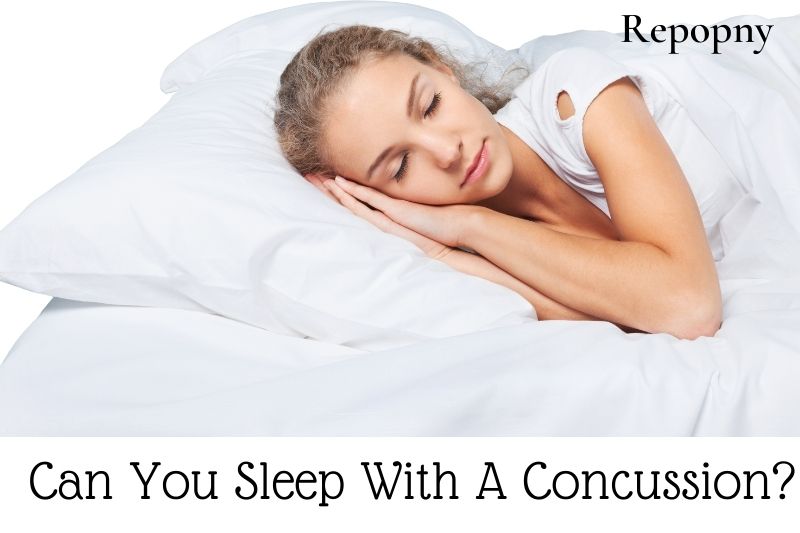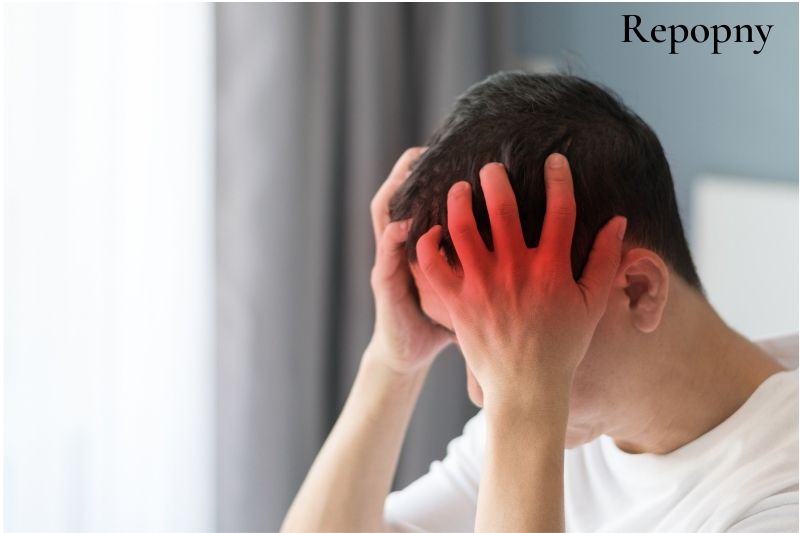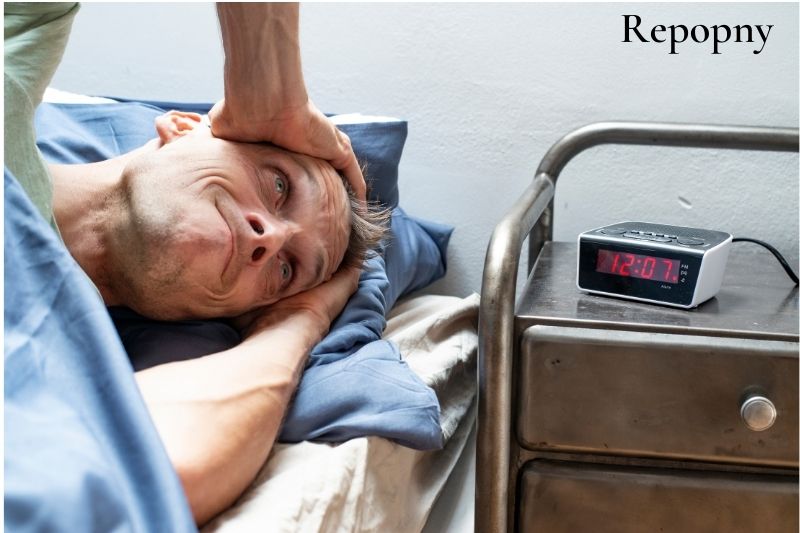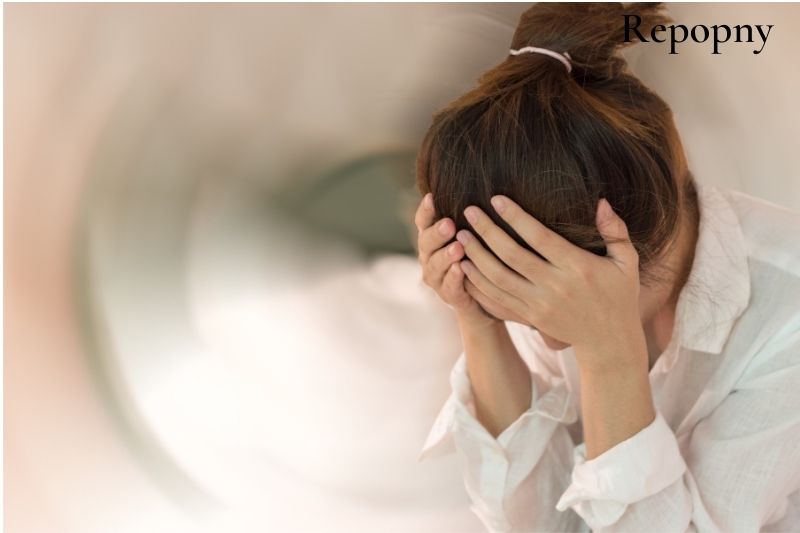A concussion is a type of brain injury that can occur after a blow to the head. Symptoms can include headache, dizziness, nausea, and difficulty sleeping.
Although it is generally considered that can you sleep with a concussion? Some people may find that their symptoms make it difficult to fall asleep or stay asleep.
How Does A Concussion Happen?
A concussion is a type of traumatic brain injury caused by a bump, blow, or jolt to the head, according to the Centers for Disease Control and Prevention (CDC).
A powerful impact on the body can also cause the head and brain to rush back and forth, resulting in brain shock. The brain may bounce around or rotate inside the skull due to this abrupt movement.
It can cause chemical changes in the brain and stretch and destroy brain cells, according to the CDC.
Medical professionals generally refer to Concussions as a “mild” form of brain injury because they are rarely fatal. On the other hand, it can be extremely uncomfortable and can continue for weeks or even months.
Symptoms
The symptoms of a concussion usually appear during the first 48 hours after a head injury. Symptoms can, however, be delayed in some circumstances.
The symptoms are divided into four categories, according to the CDC:
- Considering or recalling
- physical
- emotional
- sleep
The following parts will go through each of these categories in greater depth and discuss some potential symptoms in youngsters.
Considering or recalling
It can affect someone’s thinking and short-term memory. Symptoms that fall within this category include:
- concentration problems
- Confusion or clouding of the mind
- new knowledge is tough to recall
- a sense of being slowed
Physical
It can cause the following physical symptoms:
- worsening headache
- Having a double vision or hazy vision is a common occurrence.
- light or sound sensitivity
- dizziness or issues with balance
- vomiting or nausea
- tiredness or a lack of energy
A transient loss of consciousness may occur as a result of some concussions. Longer-than-30-minute periods of unconsciousness A more severe head injury could be indicated by Trusted Source.
Emotional
Concussion emotional symptoms can include:
- irritability
- sadness
- nervousness
- anxiety
- mood swings
Sleep
Sleep patterns and quality can be affected by brain shock. Symptoms of sleep deprivation include:
- Getting less sleep than normal
- sleeping for more extended periods than normal
- being unable to get a good night’s sleep
When recuperating from a concussion, a person should try to obtain a decent night’s sleep and take naps as needed during the day.
Symptoms In Children
Infants and young children may have a more challenging time detecting a concussion. This is due to their inability to explain their feelings adequately.
If a baby or young kid receives a hit to the head, parents and caregivers should watch for signs of concussion in their child’s behavior.
The following are examples of behavioral changes:
- I’ve been crying a lot or a lot more than usual.
- variations in eating and sleep schedule
- a lack of interest in other people, toys, or things
The above symptoms in infants and young children necessitate rapid medical intervention.
Can People Sleep With A Concussion?
A person who has had a brain shock, whether suspected or proven, will need to be monitored throughout their recovery.
If a person falls asleep after a head injury, the signs and symptoms of serious brain damage may be missed by them and those around them. As a result, medical professionals used to recommend that people stay awake after a brain shock.
Medical specialists now have advanced imaging techniques at their disposal, allowing them to examine for any visible symptoms of head trauma. Thanks to modern medical technology, they can also keep a better eye on people.
As a result, they now agree that patients can sleep comfortably.
What To Do After A Concussion?
Rest is crucial since it aids in the recovery of the brain. Parents and caregivers of infants and small children who have suffered trauma should watch them and make sure they get enough rest.
Adults who have suffered a concussion should have another adult around to keep them company and monitor their symptoms and recovery.
A person recuperating from a concussion should:
- Rest as much as possible rather than attempting to “push through” the symptoms.
- Physically and psychologically taxing tasks should be avoided.
- Sports, for example, should be avoided if another concussion is possible.
- Driving a car or operating heavy machinery should be avoided unless a medical specialist advises it is safe to do so.
- Alcohol and other non-prescribed substances should be avoided because they can interfere with healing.
- Excessive usage of electronic gadgets, including televisions, game consoles, and telephones, should be avoided at least an hour.
Post-Concussion Syndrome
A person recovering from a shock usually takes a few days to a few weeks. On the other hand, the symptoms might sometimes continue for a long time.
The medical term for chronic concussion symptoms is a post-concussion syndrome. People with multiple concussions are more likely to develop this condition. It can, however, happen after a single concussion.
In some circumstances, the post-concussion syndrome might linger for months.
Symptoms can include, but are not limited to:
- memory and attention problems
- headaches
- dizziness
- a light sensitivity
- tinnitus
- neck ache
- sleep disturbances
- fatigue
- irritability
When Should You See A Doctor?
If a concussed person receives a blow to the head and develops concussion symptoms, they should seek medical help.
If a person’s symptoms last for more than a week or intensify, they should see a doctor or emergency room.
After the brain shock, a person may suffer bleeding in the brain, which is contained between the brain’s surface and its outer covering. A subdural hematoma is what this is called (SDH).
Pressure can build up between the brain and the skull due to an SDH. The brain can be compressed and damaged as a result of this pressure. It can be lethal if not treated.
People who have had a severe head injury are more likely to develop SDH symptoms shortly after the incident. Those who have had a minor head injury may develop SDH symptoms days or even weeks later.
Among the signs and symptoms are:
- a headache that persists or worsens
- vomiting and nausea
- confusion
- daytime sleepiness or inability to keep one’s eyes open
- Double vision is an example of a visual problem.
- Slurred speech is an example of a speech alteration.
- On one side of the body, there is paralysis.
- Changes in mood or personality
- walking difficulties
- a lot of falls
- Seizures or convulsions
- consciousness loss
- weeping incessantly (in children)
- unwillingness to consume food or drink (in children)
If a person or their kid exhibits any symptoms of SDH as a result of a head injury, they should seek immediate medical attention.
FAQs
After a concussion, why can’t you sleep?
You can sleep after this. It is a common misconception that you must stay awake for the first 24 hours.
How long should you wait when it comes to sleep after a concussion?
There is no specific time when you should go to bed. It is, nevertheless, a good idea to stay awake long enough to visit a doctor. It’s critical to recognize indicators of significant brain injury as soon as possible, which can’t happen when you’re usually sleeping.
What happens if you have a concussion and sleep?
Sleeping aftershock is most likely just a way of getting some rest and speeding up your recovery. People believed that if you went to safely sleep, you could fall into a coma or die, but that is no longer the case.
Are sleeping problems a sign of a concussion?
Yes, some people have trouble sleeping after this. Headaches it’s the second most commonly reported side effect. It’s usually not an early symptom but one that appears later in your recovery.
Maybe you need:
- How To Sleep After Gallbladder Surgery?
- How To Sleep With Stomach Ulcer?
- How To Sleep After Wisdom Teeth Removal?
Conclusion
The long-term effects of concussions can be severe. There are a number of symptoms that can arise due to prolonged concussions, and sleep problems are not uncommon in people who have sustained multiple concussions. With proper care, it can be treated, and the symptoms of long-term recovery can be reduced.




